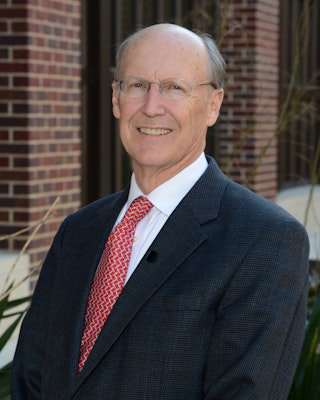Editor's Note
Applying the principles of compassionate conservatism to global challenges

This edition of The Catalyst concludes a series of four issues of our journal on what compassionate conservatism means for today’s world. President Bush’s words in a 2003 London speech defined the guiding principles of this philosophy:
We believe in open societies ordered by moral conviction. We believe in private markets humanized by compassionate government. We believe in economies that reward effort, communities that protect the weak, and the duty of nations to respect the dignity and the rights of all.
Over the last year, we have attempted to apply those values to the challenges facing America’s middle class, creating pathways out of poverty, and finding common-sense solutions for the environment. Our summer Catalyst wraps up this series by providing strategies for engaging a turbulent world.
You will read in this issue:
- Henry Kissinger, the former secretary of state, on Russia, China, populism, and artificial intelligence.
- Michael Chertoff, the former homeland security secretary, on combating hacking in the 2020 election.
- Niall Ferguson, a historian, author, and senior fellow at the Hoover Institution and the Center for European Studies, on why he thinks a Cold War is unfolding with China and how the U.S. should respond.
- Holly Kuzmich, executive director of the George W. Bush Institute, making the case for why Africa must be front-and-center in American foreign policy.
- Victor Cha, the Bush Institute’s Human Freedom Initiative’s senior fellow, explaining why human rights should be part of our North Korea policy.
- Joseph Kim, a North Korean refugee who serves as a Bush Institute Human Freedom assistant, presenting a moral case for treating refugees with compassion and dignity.
- Natalie Gonnella-Platts, director of the Bush Institute’s Women’s Initiative, and Farhat Popal, senior program manager in the Women’s Initiative, detailing why global stability depends upon opportunities for young people to thrive.
- Lindsay Lloyd, the Bradford M. Freeman Director of the Bush Institute’s Human Freedom Initiative, reminding us of the importance of NATO to U.S. security.
- Matthew Rooney, managing director of the Bush Institute-SMU Economic Growth Initiative, and J.H. Cullum Clark, director of the joint initiative, outlining a forward-looking response to the economic challenge posed by China.
- Nicole Bibbins Sedaca, a Bush Institute Human Freedom Initiative fellow, explaining why America must answer freedom’s call in spite of numerous challenges to democracy.
- Juan Jose Daboub, former Salvadoran finance minister and former managing director of the World Bank, looking at the impact of international trade from a developing nation’s perspective.
We know the world is filled with troublesome problems, but we also believe there is reason to hope for a better world. Chris Walsh, senior program manager in the Bush Institute’s Human Freedom Initiative and Women’s Initiative, writes about how community is being created in places like Burma. James Patton, president and CEO of the International Center for Religion & Diplomacy, reports how people of different faiths are collaborating on some of the world’s most intractable problems. And Presidential Leadership Scholars Neha Misra and Conor French write about the rise of social entrepreneurship – and how innovative, entrepreneurial leaders and organizations are reshaping communities in places like Rwanda and Nigeria.
We are sharing your thoughts from our last issue below, so please don’t hesitate to let us know your views about the pieces in this final edition of our compassionate conservatism series.
Letters to the Editor: Your Response to the Spring 2019 Common-Sense Conservation Catalyst
Re: Laura Bush on Conservation
I enjoyed learning so much. I’m going to plant antelope horn milkweed for the Monarchs.
Lynda Bethel, Lamesa, Texas
I am very impressed with your strong leadership to protect and conserve natural resources in Texas by founding Texan by Nature.
Yumiko Kokuryu, Tokyo, Japan
I work at the library in Glencoe, Illinois. We have a number of educational programs and would embrace learning about and acting upon conserving our oceans. But this dire subject simply hasn’t made an impression on most people. I, too, am guilty. We need more lecturers in libraries and other places to spread the word about plastics in our oceans. Thank you for bringing this to our attention.
Betty McGrew, Glencoe, Illinois
Re: J.H. Cullum Clark and Natalie Gonnella-Platts on Wildlife Crime Threatens Species and Fuels Transnational Crime
A first-class article. It is full of cogent economic and political economy thinking. It certainly points out the importance of reducing wildlife crime. The emphasis on the Communal Conservancy approach is quite appealing. Good job.
Tom Fomby, Dallas, Texas
Re: Aaron Packman on Strategies to Keep Major Cities from Running Dry
Thanks for this security alert on water. When we lived in Chicago, we did worry about the changes in the Great Lakes, They were landmarks we showed to our children when they were in elementary school. Thank you for a great argument about water security.
Patricia Killeen Vasquez, Albuquerque, New Mexico
The Catalyst believes that ideas matter. We aim to stimulate debate on the most important issues of the day, featuring a range of arguments that are constructive, high-minded, and share our core values of freedom, opportunity, accountability, and compassion. To that end, we seek out ideas that may challenge us, and the authors’ views presented here are their own; The Catalyst does not endorse any particular policy, politician, or party.

